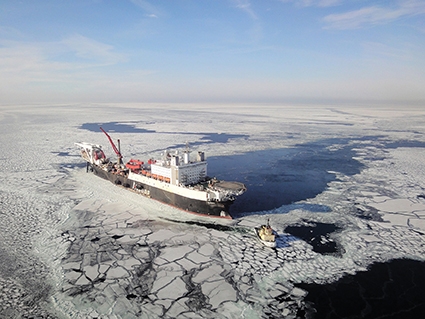Nord Stream-2 Will Be Built Regardless of US Sanctions
The new anti-Russian sanctions of the United States, as it turns out, can in no way can prevent Gazprom from completing the Nord Stream-2 gas pipeline, Alexander Ivannikov the Head of the Department of Financial and Economic Policy of Gazprom explained during a conference call with media on Thursday.
Gazprom is waiting for clarification on the terms of the sanction regime from OFAC (Department of the US Treasury Office for Control over Foreign Assets). However, it is already clear that the new law does not close the ability of the Holding to borrow in foreign markets to finance the project.
"Like our partners in the project, we are also engaged in trying to achieve certainty. The law is so vague that right now not even Western law firms can give a clear answer to the question of what can and cannot be done," Ivannikov said.
At the same time, the top manager of Gazprom stressed that even if risks exceeded the economic benefits for Gazprom's partners, "the Nord Stream-2 project will be implemented with the clarification of lawyers, OFAC and other structures".
The main obstacle is the provision of the law, according to which President Donald Trump can impose sanctions on persons investing more than $5 million per year, or $1 million at a time, in the construction of Russian export pipelines. However, Gazprom does not seem at all bothered by this.
"I don’t see any problem: external borrowing can be directed at internal goals and the revenues from commercial activities directed to project activities. Meanwhile, everything remains on schedule, both for Gazprom, and for partners," Ivannikov explained.
True, this option increases the debt burden on Gazprom, which can affect the level of dividend payments. And the pressure from the government of the Russian Federation, which currenly insists on payment to the amount of 50% of profits, will increase, the top manager noted.
"The search for this compromise between the need to finance internal projects, between the availability of borrowed external resources and the need to pay dividends at a level not lower than that of the previous year, is a decision that can hardly be subjected to detailed analysis at the moment," Ivannikov concluded.
David Drummers











